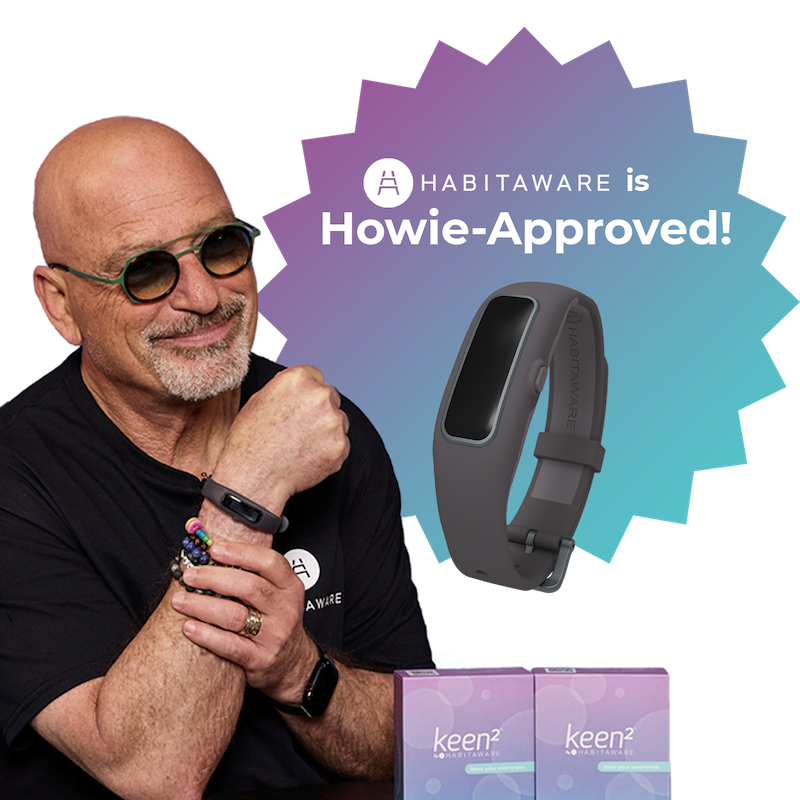Ever since HabitAware began, we've prioritized working hand-in-hand with experts in the field to ensure that everything we deliver to the Body Focused Repetitive Behavior (BFRB) community is grounded in evidence-based principles. From early guidance from local advisor Dr. Carol Novak, to our collaborative research via grants from the National Institute of Mental Health with experts in Habit Reversal Training, Drs. Doug Woods and Chris Flessner, we've always valued the critical role of professional expertise in shaping our offerings for BFRB recovery.
That's why we are especially excited to share the news that HabitAware has taken a significant step forward by welcoming our first-ever Clinical Research Director, Dr. Hilary Weingarden. Hilary’s addition marks another milestone in our commitment to merging lived experience with scientific rigor, empowering the BFRB community with tools and resources they can trust. Learn more about Hilary’s journey in BFRB treatment and what she’ll be working on below!
I’m so happy to be here! I'm a licensed clinical psychologist in MA, and probably half of my clinical practice is focused on working with people with BFRBs. I love treating BFRBs, because the treatment really requires the provider and client to closely partner to understand that individual person’s BFRB patterns. I tell my clients that BFRBs are like Swiss Army Knives - they serve lots of different functions for each person. The critical start of treatment is building awareness of the behavior together and doing detective work to understand WHAT the behavior is doing for the person in each moment that they’re using it. From there, we have the knowledge we need to select and test treatment strategies that address the functions the BFRB is currently filling.
I first trained in treating BFRBs in grad school through the TLC Foundation and the Behavior Therapy Center of Greater Washington. After grad school, I trained and worked as a clinical researcher and clinician for almost a decade at the Massachusetts General Hospital and Harvard Medical School Center for OCD and Related Disorders (OCRDs), where I was an assistant professor. Through my work, a couple things that struck me were:
(1) the sense of shame that so many people with BFRBs and other OCRDs experience;
(2) how harmful that shame can become; and
(3) what a tremendous need there is for enhancing access to treatment and effectiveness of treatments for BFRBs and other OCRDs.
These observations compelled me to explore the impact of shame in OCRDs, and how we can use technology to improve access to and effectiveness of mental health care. My research has been funded by NIH, Harvard Medical School, and academic-industry collaborations.
So how did I come to join the team at HabitAware?
In my clinical practice, so many of my clients with BFRBs were using Keen/Keen2 and engaging with HabitAware's online content. They had such positive things to say about the products and often, the insights they got from their Keen2 or the HabitAware newsletters sparked momentum in our treatment. I knew I had to check HabitAware out more closely, since it was the perfect overlap of my interests in BFRBs and using tech to improve mental health care.
I started my journey with HabitAware like I'm sure a lot of you did - reaching out to Ellen to start a conversation! We had a lot to talk about together, and this led to getting introduced to HabitAware’s cofounders, Sameer and Aneela, as well. I learned about all the things the team was doing for the BFRB community. After reviewing their online self-help programs, I was blown away by the quality and depth of the program content. When I saw for myself how exciting and life changing their work is to the BFRB community, I knew I had to join them.
As Clinical Research Director, I am supporting HabitAware’s existing research initiatives, and spear-heading new projects, including focusing on the evidence-base for Keen/Keen2 and HabitAware’s other BFRB recovery resources.
If you're curious about what I'm doing when I'm not in clinician or research-mode, I'm a mom of two toddlers, which keeps me very busy outside of work! We also have a sweet dog named Bash. I'm a fan of swimming, hiking, and cooking, although I have less time for these things than I used to!


